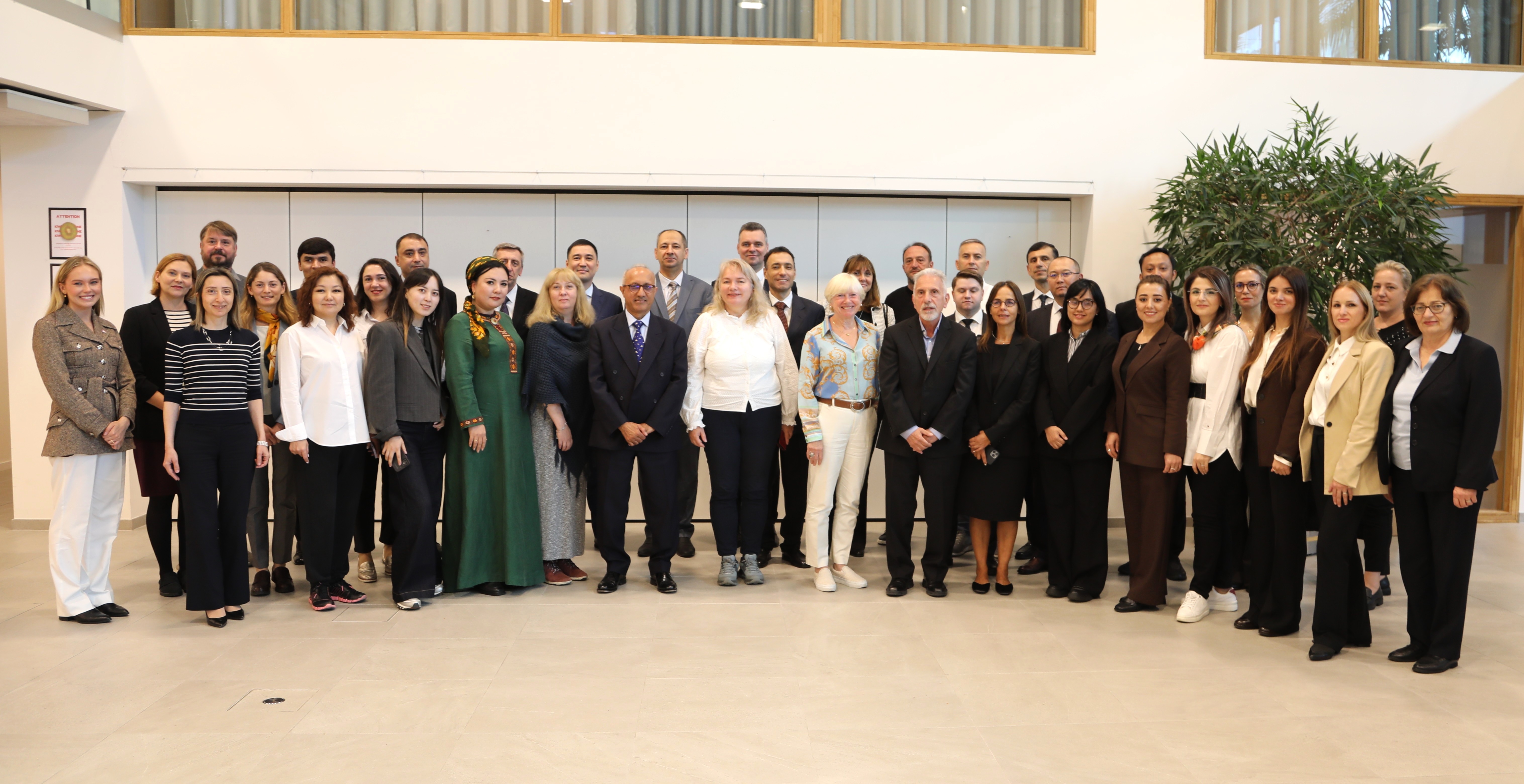
EFTA and UNECE co-organise National Accounts Workshop

From 30 September to 3 October, EFTA and UNECE co-organised an “Introduction to 2025 SNA Institutional Sector Accounts” workshop at EFTA House in Brussels, in close cooperation with experts from the International Monetary Fund (IMF), European Central Bank (ECB), Eurostat, Central Banks and Statistics Norway. The workshop was organised for EFTA partner countries included in the EU Enlargement Policy and European Neighbourhood Policy in East and Central Asia.
Institutional sector accounts form a core part of the System of National Accounts (SNA), as developed within the United Nations framework. They provide a detailed statistical picture of economic activities, capturing both non-financial transactions such as consumption and capital investment, and financial transactions and stocks, including deposits, loans and other instruments. These data are broken down by institutional sector, including households, government, and financial and non-financial corporations, providing a comprehensive view of how different parts of the economy interact.
The accounts are essential for understanding the performance of national economies, enabling international comparison and promoting transparency and accountability across the public and private sectors. In this context, EFTA’s aim is to increase the availability of high-quality, reliable and comparable national accounts in its partner countries. The data serve policymaking at national and international level, as well as informing EFTA’s third-country policy, and are also used for general information and comparison by the business community, academia and the public. As such, they contribute to well-functioning market economies and democratic societies.
This is the fourth year in a row that EFTA and UNECE have co-organised a week-long workshop, with this year’s edition bringing together 70 experts in the field, including participants from various international organisations, such as the IMF, Eurostat, ECB, national statistical institutes (NSIs), EU Member States and EFTA’s partner countries, representing over 23 countries. Participants joined both in person and online, reflecting the truly international scope of the event.
The workshop opened with an introduction to the 2025 SNA and BPM7, covering the main changes, revision policies and communication strategies. Experts then delved into institutional sector accounts, focusing on selected transactions and sectors in the evolving financial landscape, as well as the integration of financial and non-financial accounts.
Special emphasis was placed on practical experiences in the field of national accounts from Statistics Norway. Partner countries also had the opportunity to share their experiences, including Armenia, which presented its work on compiling both financial and non-financial accounts, and Kazakhstan, which highlighted its efforts in harmonising statistical systems. Other national contributions included insights from Slovenia, Tajikistan, Georgia and Azerbaijan. Furthermore, practical exercises complemented the workshop, providing participants with the opportunity to deepen their understanding and technical skills when compiling sector accounts.
As in previous years, EFTA financed the participation of experts from its partner countries in Eastern Europe, the Caucasus and Central Asia. This reflects EFTA’s continued commitment to capacity building in the field of statistics as part of its 2025 work programme for technical cooperation, approved by the EFTA Council in January. Read more about the EFTA Statistical Office’s statistical cooperation here and visit the UNECE website for a detailed programme of this year’s workshop.
The EFTA Secretariat extends its gratitude to the co-organisers at UNECE, as well as the speakers and participants for their valuable contributions and active engagement throughout the workshop, with special thanks to Mr Sanjiv Mahajan from the SNA Update Team for his voluntary contribution.